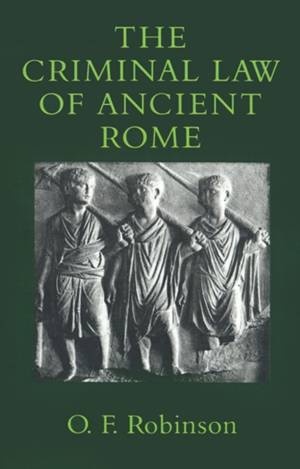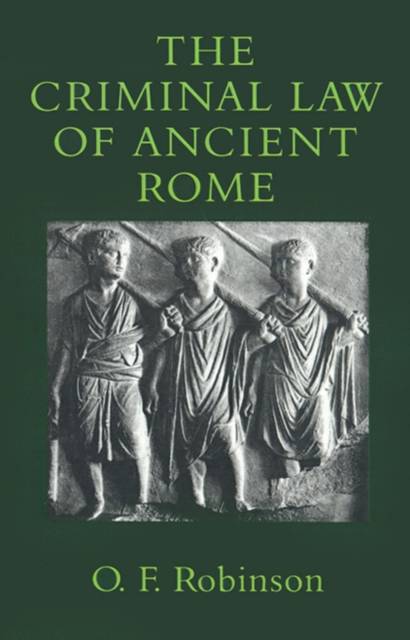
- Retrait gratuit dans votre magasin Club
- 7.000.000 titres dans notre catalogue
- Payer en toute sécurité
- Toujours un magasin près de chez vous
- Retrait gratuit dans votre magasin Club
- 7.000.000 titres dans notre catalogue
- Payer en toute sécurité
- Toujours un magasin près de chez vous
Description
Although the Romans lived in a society very different from ours, they were like us in fearing crime and in hoping to control it by means of the law. Ordinary citizens wanted protection from muggers in the streets or thieves at the public baths. They demanded laws to punish officials who abused power or embezzled public monies. Even emperors, who feared plotters and wanted to repress subversive ideas and doctrines, looked to the law for protection.
In the first book in English to focus on the substantive criminal law of ancient Rome, O. F. Robinson offers a lively study of an essential aspect of Roman life and identity. Robinson begins with a discussion of the framework within which the law operated and the nature of criminal responsibility. She looks at the criminal law of Rome as it was established in the late Republic under Sulla's system of standing jury-courts. Grouping offenses functionally into five chapters, she examines crimes committed for gain, crimes involving violence, sexual offenses, offenses against the state, and offenses against the due ordering of society.
Spécifications
Parties prenantes
- Auteur(s) :
- Editeur:
Contenu
- Nombre de pages :
- 214
- Langue:
- Anglais
Caractéristiques
- EAN:
- 9780801867576
- Date de parution :
- 19-12-95
- Format:
- Livre broché
- Format numérique:
- Trade paperback (VS)
- Dimensions :
- 144 mm x 228 mm
- Poids :
- 335 g







